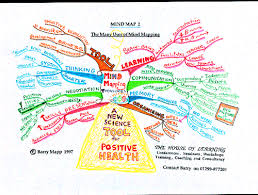Have you ever felt you are cursed with character defects? And these flaws are ingrained in your DNA? You have probably thoroughly internalized the notion that you are inherently and irreparably flawed and you are justified in at times hating yourself.
You might believe that your very nature is wretchedly defective; that your flaws cannot be repaired and you can only guard against by increased vigilance of your SELF.
The idea of
self came with the French revolution and the consolidation of Christianity as a
religion of salvation and confession of self, in which the notions of equality
and liberty are broadened. At that historic moment, a particular social being
was gradually produced a self which was the bearer of certain rights and
responsibilities and whose existence required a sort of interior that assume
the responsibility for the person’s acts and is open to normalization
programmes.4
You might believe that your very nature is wretchedly defective; that your flaws cannot be repaired and you can only guard against by increased vigilance of your SELF.
Here Foucault sees the acceding of power and sovereignty to the subject
and a conferral of the system of right as a designation to eliminate that fact
of domination. He discerns a subjective will borne out of such Enlightenment
thinking, which wants to gain control of reality and matter for the purpose of
satisfying our anthropomorphic desires. Such a view holds that power play in
Modernism has produced a citizen with rights and obligations. A subject who has
biases and is the origin of moral actions and ethical responsibility. In short,
an individual.
Following on from this notion on the forming of a modern day
subject there is Foucault’s further view that the identity of the democratic
subject is always in process; producing itself in response to and being that we
experiment with the possibility of going beyond them. Indeed Foucault
(1984) advocates, that we become architects of ourselves: “The critical
ontology of ourselves has to be considered as an attitude, an ethos, a
philosophical life in which the critique of what we are is at one and the same
time the historical analysis of the limits that
are imposed on us and an experiment with the possibility of going beyond them.”
Source Peter Cheevers PhD
No comments:
Post a Comment